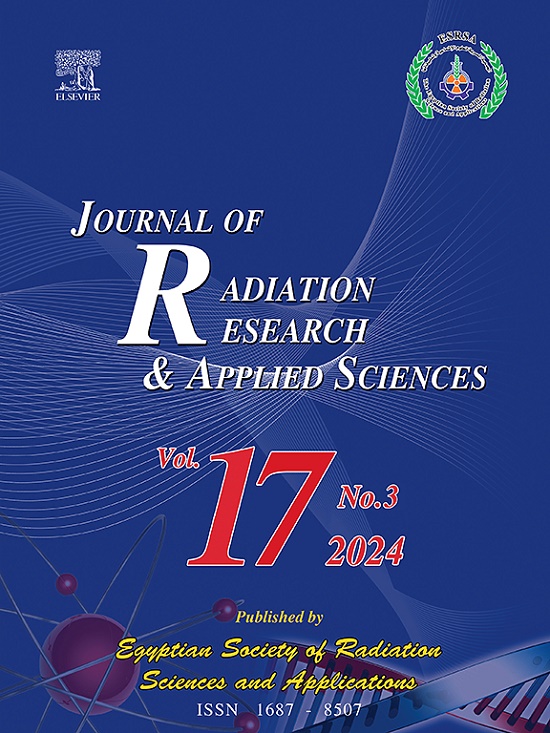基于渐进式首次失效普查样本的指数化帕累托分布多成分应力强度模型的可靠性推断
IF 2.5
4区 综合性期刊
Q2 MULTIDISCIPLINARY SCIENCES
Journal of Radiation Research and Applied Sciences
Pub Date : 2024-09-26
DOI:10.1016/j.jrras.2024.101122
引用次数: 0
摘要
多组件应力-强度(MC-SS)分析对于工程、制造和质量控制等各个领域的风险管理和决策至关重要。它有助于识别易受影响的组件以及可提高整体系统可靠性的改进领域。本研究的一个主要贡献是实施了渐进式首次失效删减(PFIF-C)方案。该方案提供了一种新颖、高效的时间和成本剔除方法,超越了文献中的许多现有剔除方案。本研究探讨了在 PFIF-C 方案下从指数化帕累托分布推断 MC-SS 可靠性的问题。MC-SS 系统的可靠性是在应力和强度都遵循具有共同第二形状参数的指数化帕累托分布的条件下考虑的。采用最大似然法和贝叶斯法计算 MC-SS 系统的参数估计和可靠性估计。得出了 MC-SS 系统可靠性的渐近置信区间和最高后验密度可信区间。在有信息和无信息先验条件下,考虑对称和非对称损失函数,使用马尔可夫链蒙特卡罗得出贝叶斯估计值。为了评估所建议方法的有效性,进行了模拟分析。根据模拟数据,采用对称和非对称损失函数的 MC-SS 可靠性贝叶斯估计值在估计风险方面始终优于最大似然估计值。一般来说,基于非对称损失函数的贝叶斯估算结果优于其他竞争性损失函数。该程序通过一个关于特定软件模型失效时间的实际数据示例进一步说明了如何将推荐方法应用于评估多组件模型的强度和应力。本文章由计算机程序翻译,如有差异,请以英文原文为准。
Reliability inference of a multicomponent stress-strength model for exponentiated Pareto distribution based on progressive first failure censored samples
Multicomponent stress-strength (MC-SS) analysis is crucial for risk management and decision-making in various fields such as engineering, manufacturing, and quality control. It helps in identifying vulnerable components and areas where improvements can enhance overall system reliability. A primary contribution of this research is the implementation of the progressive first-Failure censored (PFIF-C) scheme. This scheme offers a novel and efficient approach to time and cost censoring, surpassing many existing censoring schemes found in the literature. The current study investigates the issue of MC-SS reliability inference under PFIF-C from the exponentiated Pareto distribution. The reliability of the MC-SS system is considered under the condition that both stress and strength follow an exponentiated Pareto distribution with a common second shape parameter. The parameter estimates and reliability estimate of the MC-SS system is produced using the maximum likelihood and Bayesian procedures. The asymptotic confidence intervals and highest posterior density credible intervals for the MC-SS system reliability are produced. Bayesian estimates are yielded using Markov Chain Monte Carlo under both informative and non-informative priors, considering symmetric and asymmetric loss functions. In order to assess the efficacy of the suggested methodology, simulation analyses are conducted. According to the simulation data Bayesian estimates of the MC-SS reliability, employing both symmetric and asymmetric loss functions, consistently outperform maximum likelihood estimates in terms of estimated risks. In general, Bayesian estimates based on asymmetric loss function perform better than the other competing loss function. The procedure is further shown with one real-world data example about failure times of a specific software model to show how the recommended approach may be applied to assess the strength and stress of a multicomponent model.
求助全文
通过发布文献求助,成功后即可免费获取论文全文。
去求助
来源期刊

Journal of Radiation Research and Applied Sciences
MULTIDISCIPLINARY SCIENCES-
自引率
5.90%
发文量
130
审稿时长
16 weeks
期刊介绍:
Journal of Radiation Research and Applied Sciences provides a high quality medium for the publication of substantial, original and scientific and technological papers on the development and applications of nuclear, radiation and isotopes in biology, medicine, drugs, biochemistry, microbiology, agriculture, entomology, food technology, chemistry, physics, solid states, engineering, environmental and applied sciences.
 求助内容:
求助内容: 应助结果提醒方式:
应助结果提醒方式:


